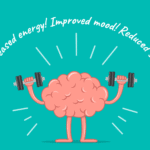
In the world of fitness, most people focus on intense workouts, long runs, and lifting heavy weights. But what many forget is the power of rest. Yes, rest days are just as important as training days. Taking time off from your workout is not being lazy—it is being smart.
Rest helps your body heal, build strength, and avoid injuries. In fact, doing nothing sometimes is what helps you do more later.
What Happens When You Rest?
When you engage in physical activities like weightlifting or running, your muscles experience small tears. These microtears are normal and part of the muscle-building process. However, they require time to heal. Rest days provide this essential recovery period. Without adequate rest, muscles cannot repair properly, leading to fatigue and potential injuries.
The Importance of Muscle Recovery
Muscle recovery is vital for progress. During rest, the body repairs and strengthens muscle fibers. This process leads to increased muscle mass and improved strength. Skipping rest days can hinder this recovery, slowing down your progress and increasing the risk of overtraining.
Preventing Overuse Injuries
Continuous training without rest can lead to overuse injuries such as tendinitis or stress fractures. These injuries occur when the body is subjected to repetitive stress without sufficient recovery time. Incorporating rest days into your routine allows your body to heal and adapt, reducing the risk of such injuries.
Enhancing Performance
Rest days contribute to improved performance. A well-rested body functions more efficiently, allowing you to lift heavier weights, run faster, and perform better in your workouts. Overtraining without rest can lead to fatigue, decreased strength, and diminished endurance, making it harder to achieve your fitness goals.
Mental Health Benefits
Physical exercise is undeniably beneficial for mental health, but it’s important to strike a balance. Constantly pushing yourself without breaks can lead to burnout, where motivation dwindles, and exercise becomes a chore rather than a pleasure. Rest days provide a mental break, allowing you to recharge and return to your workouts with renewed energy and enthusiasm.
Signs You Need a Rest Day
It’s essential to listen to your body. Signs that you may need a rest day include:
- Persistent muscle soreness
- Decreased performance
- Fatigue
- Irritability
- Trouble sleeping
If you experience any of these symptoms, it’s a clear indication that your body requires rest.

Read About: 5 Fun Fitness Challenges to Try with Friends
How to Make the Most of Your Rest Day
Rest doesn’t mean complete inactivity. Active recovery can be beneficial. Consider engaging in light activities such as:
- Walking
- Gentle yoga
- Stretching
- Swimming
These activities promote blood flow and aid in muscle recovery without placing additional stress on the body.
Rest Days in Indian Fitness Culture
In India, gym culture and home workouts are on the rise. From Bollywood celebrities to influencers, everyone promotes fitness. But many forget to talk about recovery. In fact, some feel guilty for taking rest.
This mindset needs to change. Fitness trainers and influencers in India should highlight the value of proper rest. Yoga, for example, already teaches balance between effort and relaxation. The same concept should apply to fitness routines.
Also, in Indian homes, rest is often misunderstood. Family members may say, “You’re skipping exercise today? Are you giving up?” It’s important to educate ourselves and others that rest is part of a smart, long-term fitness plan.

Conclusion
Rest days are not a luxury but a necessity in any fitness journey. They allow the body to recover, prevent injuries, and enhance performance. By understanding and respecting the role of rest, you can achieve sustainable progress and maintain a balanced approach to fitness. Remember, doing nothing on rest days is actually contributing to your progress.
Author: Sonam











1 thought on “The Role of Rest Days: Why Doing Nothing Is Part of Progress”